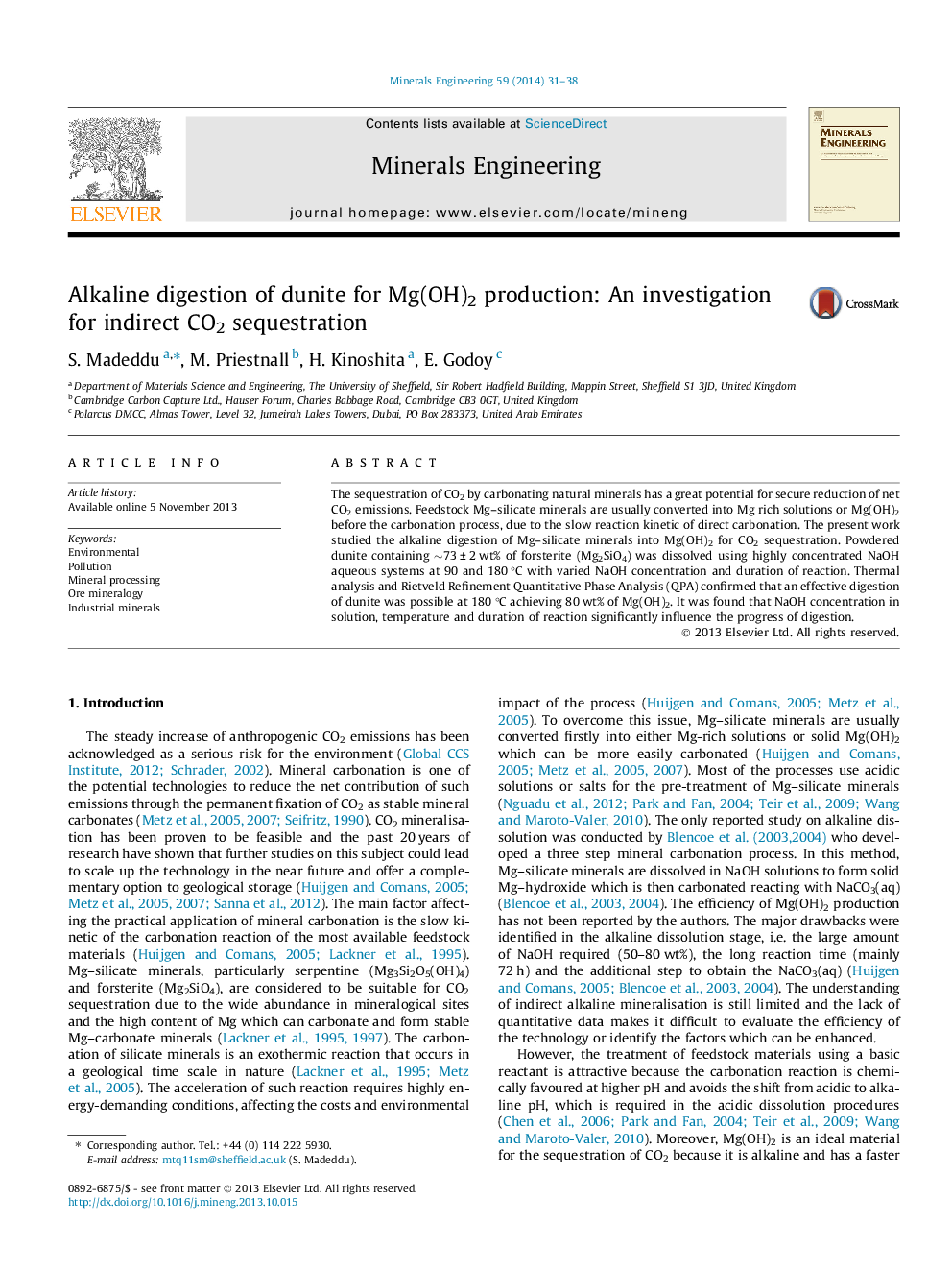| Article ID | Journal | Published Year | Pages | File Type |
|---|---|---|---|---|
| 233326 | Minerals Engineering | 2014 | 8 Pages |
•Dunite can be almost fully substituted with Mg(OH)2.•The digestion of dunite was favoured by the increase of NaOH concentration in solution.•The digestion of dunite was favoured by the increase of temperature and duration of reaction.•A maximum of 80 wt% Mg(OH)2 formed in the product of reaction.•Maximum yield of MgO conversion into Mg(OH)2 was 66%.
The sequestration of CO2 by carbonating natural minerals has a great potential for secure reduction of net CO2 emissions. Feedstock Mg–silicate minerals are usually converted into Mg rich solutions or Mg(OH)2 before the carbonation process, due to the slow reaction kinetic of direct carbonation. The present work studied the alkaline digestion of Mg–silicate minerals into Mg(OH)2 for CO2 sequestration. Powdered dunite containing ∼73 ± 2 wt% of forsterite (Mg2SiO4) was dissolved using highly concentrated NaOH aqueous systems at 90 and 180 °C with varied NaOH concentration and duration of reaction. Thermal analysis and Rietveld Refinement Quantitative Phase Analysis (QPA) confirmed that an effective digestion of dunite was possible at 180 °C achieving 80 wt% of Mg(OH)2. It was found that NaOH concentration in solution, temperature and duration of reaction significantly influence the progress of digestion.
